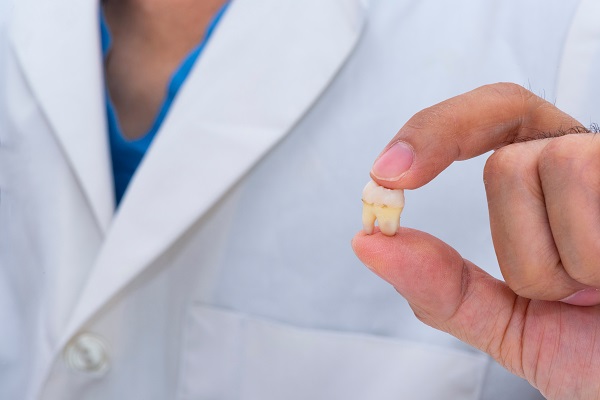Tooth Extraction: 5 Do’s and Don’ts After Surgery
It can be hard to know exactly how to recover properly after . Long ago, there was a lot of pain involved afterward, however, modern-day dentistry has allowed for the evolution of less invasive techniques, which results in less swelling and less pain. Nonetheless, there are still a few things to consider after tooth extraction. Keep reading to find out more.
5 Do's and don'ts after tooth extraction
Outlined below are a few do's and don'ts to follow after tooth extraction. These tips come right from a general dentist who is trained to offer the necessary aftercare recommendations.
1. Don't eat hard or tough foods
Eating hard or tough foods can be irritating to the fresh extraction wound. It is best to avoid foods that may be too hard or too tough, such as jerky, meat with bones, or raw vegetables. Instead, a soft-food diet or a lot of liquids are best to consume for a day or so after tooth extraction.
2. Don't skip oral hygiene
It can be easy to skip oral hygiene after tooth extraction out of fear of irritation, however, this can do harm to the entire oral cavity. Skipping oral hygiene can lead to infections in the gums and teeth. Dentists recommend using a soft-bristled toothbrush and a gentle toothpaste to clean the teeth as normal. The area where the tooth was extracted should be carefully cleaned.
3. Do use ice or cold compresses
Using an ice pack or cold compress after tooth extraction can reduce inflammation and discomfort. Typically, the wound itself should not be iced, but the surrounding area can be sore, which results in the need for an ice or cold pack. It is best to use these for a few minutes at a time only.
4. Do take an over-the-counter pain reliever
Tooth extraction does not typically warrant a need for prescription pain medication. However, there is usually some discomfort for a day or so afterward, which can result in the need to take a pain reliever. Typically, an over-the-counter pain reliever does the trick, so long as it is taken in moderation. Dentists also recommend taking them with food to avoid an upset stomach.
5. Don't use mouthwash, but do use salt-water
Dentists highly recommend using salt-water to rinse the oral cavity after tooth extraction, however, they advise against mouthwash. Mouthwash can be abrasive, which can harm the wound, thus resulting in irritation and further discomfort. Salt-water, on the other hand, is gentle and natural, but a good option for disinfecting the oral cavity to ensure cleanliness, which encourages healing.
Ready to get started?
When preparing for tooth extraction, it can be helpful to consult directly with an experienced dentist. The dentist can provide further tips on recovering, which can be helpful to those feeling nervous about the process afterward. Additionally, the patient can have any questions and concerns addressed. Give us a call today to get scheduled for an appointment.
Request an appointment here: https://www.communitysmilesnc.com or call Community Smiles at (919) 913-9075 for an appointment in our Chapel Hill office.
Check out what others are saying about our dental services on Yelp: .
Related Posts
Dealing with problematic teeth is vital to your current and future oral health, and sometimes this includes tooth extraction. Various dental issues can necessitate an extraction, but it is also important to note that not replacing the extracted tooth or teeth can harm your dental health. However, there are several methods and options to consider…
A tooth extraction may be necessary if the tooth is too decayed to be repaired. After the tooth has been extracted, it is important to allow the area to heal completely. Eating the right foods can help speed healing and avoid any complications. Read on to discover the right foods for you.The reason that dentists…
Wisdom tooth extraction is often necessary in order to promote good oral health. The procedure can be daunting to some; however, the result is a healthier oral cavity, thus ensuring better overall health. Because wisdom tooth extraction is an involved procedure, it can be helpful to know what to expect beforehand. This allows for the opportunity…
Wisdom tooth extraction is a procedure that few look forward to; however, it is often necessary in order to eliminate pain and crowding in the mouth. While many individuals are familiar with the procedure, there still may be some unknowns about the process and what to expect. Below is an overview of the wisdom tooth extraction…
